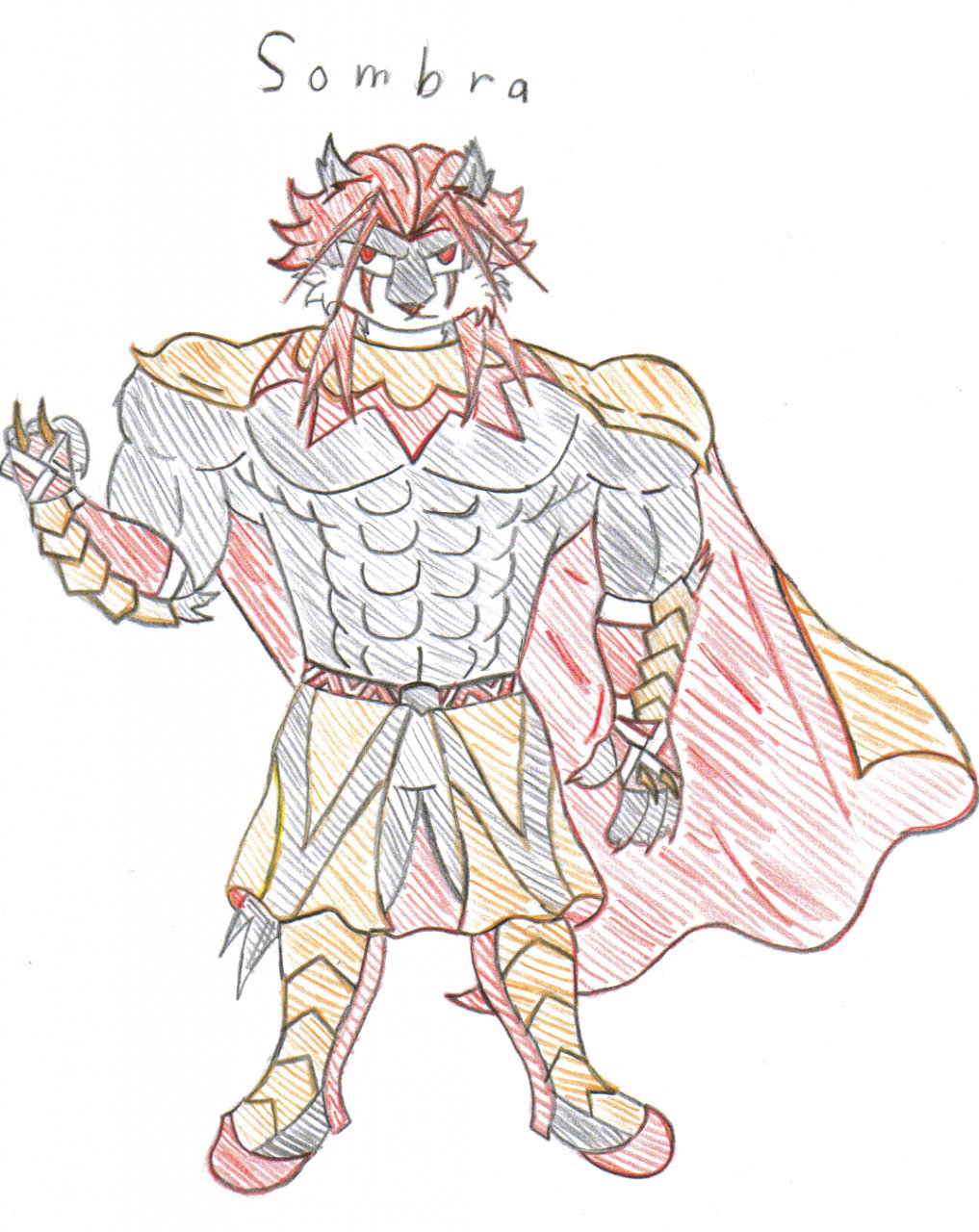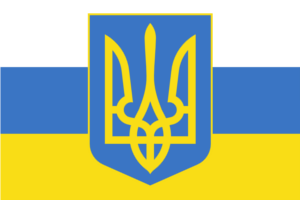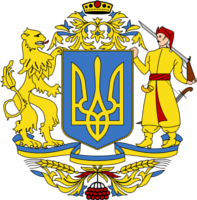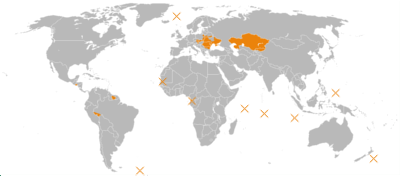Thorvald of Lym
A Little Sketchy
TWENTY YEARS HAVE PASSED since the end of the world war. An uneasy peace has been kept by the survivors of the nuclear holocaust. Despite the occasional border skirmish and clash for resources, no formal conflict has broken out, either due to national fatigue or threat of "intervention" by the New Hetmanate and its ally Petrograd, the self-appointed "world police". As infrastructure collapsed, long-distance diplomatic relations decayed, and the international community regressed into regionalism. But in a sense, the war hadn't truly ended; rather than fighting each other, humanity was now struggling against Nature herself... and losing. Radiation poisoning, famine, flood and drought had inflicted catastrophic death tolls and herded the survivors into an ever-smaller living space. Some nations, devastated at home by atomic warfare, relocated to their overseas colonies; others, either out of stubbornness or a lack of alternatives, remained on irradiated lands. Within the past decades, some have imploded completely, degenerating into a messy patchwork of opportunistic fiefdoms. The once-proud nations of the so-called "First World", desperate to perpetuate their identity, turned to the last open and least damaged continent in a mass exodus referred to as "Into Africa"; but far from the borderless frontier so naïvely assumed, the majority of Africa lay in the hands of Africans, people who had done nothing to provoke the catastrophe and who regarded the refugee régimes as fugitives. There would not be enough land to go around.
Twenty years have passed since the end of the war. The fallout still has yet to settle, and already the global community threatens a relapse. The old alliances, antagonizing though they were, at least offered some semblance of order. Petrograd and the Hetmanate kept the two decades of peace largely through luck, but now the broken combatants are remobilizing. Neighbours look to each other's lands to ease their chronic overcrowding. The ruins of the failed superpowers tantalize new nations eager to seize their former glory for themselves. The Sombra régime's antipathy towards humanity threatens a global interspecies genocide. But most worrisome of all, enough nuclear-armed warheads remain in circulation to obliterate all life on the planet. Pacifistani scientists are scrambling to reactivate the Strategic Defence Initiative before a rogue missile detonates. Perhaps, if the world can keep itself alive long enough, it may defy the staggering odds against it and turn back the planet's creeping decay.
Twenty years have passed... but what have we learned?
The human race is at a crossroads. Either it can give in to the suicidal mistake of pursuing individual greed, or it can come together as a cohesive whole to confront the hell it has made of earth and stave off the threat of extinction.
The choice is in your hands.
--------------------
Imperium Offtopicum (IOT) is a geopolitical simulation and role-playing game spun out of the Altered Maps thread in Off-Topic. Players assume the role of leader of a nation of their own creation, and interact with each other on such issues as law, economy, science and technology, humanitarianism, and national defence.
The Aftermath is a direct sequel to Imperium Offtopicum IV, and draws heavily from its history. New players are encouraged to familiarize themselves with the IOT4 Epilogue in order to better understand the background to this instalment.
Surviving nations from IOT4 are still intact, and control may be reassumed by their founding players. Alternatively, one may opt to take control of one of a list of Non-Player Countries, or found an entirely new state by selecting a colour demarcation and claiming any single territory from the world map as one's capital region. From here, players can expand their borders by dictating their actions in the thread. The world map is updated by the GM on an indeterminate basis, outlining the official national borders from which actions are to be derived. In the case of overlapping claims to territory, the matter will be passed to the United Nations for in-character resolution (see below).
Note that nations at war cannot expand into unclaimed territories, and any claims made on the same turn as the initiation of hostilities are forfeit.
Players may claim up to 5 unaligned territories per turn under the following conditions:
- Claiming territories that are not contiguous with a player's capital counts as two territories each. * When a colony of 12 connected territories is established, the cost is reduced 1 each for neighbouring regions.
- Microstates (single-pixel regions) are considered half-value, so two may be claimed for the price of one (and 1.5 overseas).
- Large territories (Canada, Siberia, Australia, etc.) count as three territories each (and all five points overseas).
The GM reserves the right to final determination of the map without explanation.

As the game progresses and empires are fleshed out, unclaimed regions will evolve into their own nations under the responsibility of the GM. NPCs do not offer as comprehensive a set of diplomatic relations as other players, but can be helpful neighbours or chronic pests depending on a player country's reputation.
United Nations

The world mediating organization managed to survive the global factionalism relatively intact, if at a reduced budget. The United Nations user group serves as a forum for dispute resolution between nations, and discussion, development and implementation of international legislation. The UN can also, with the support of other nations, launch military missions against and establish trusteeships over disputed regions.
The UN reserves the light blue colour (HTML #4b92db) on the world map.
Roleplay
Roleplay is integral to IOT, and is what MAKES The Aftermath. National reputation is influenced chiefly by roleplay. Silent bonuses and penalties are applied based on a nation's behaviour during the game. Roleplay does not need to be well-written, but the greater the time invested in the story, the more engaging the game is as a whole.
Take care that fevered dialogue does not tread into personal offence. While international rivalry is to be expected, rude, harassing, or otherwise problematic behaviour will be punished. Please also refrain from dragging real-life politics and other off-topic subjects into the game.
Combat

When all other venues at dispute resolution have failed, players can turn to combat. Battles are carried out in the battle thread. Players can choose between a random-number-generated combat algorithm and full battlefield simulation:
RNG allows for up to five attacks per turn; one set is calculated for the aggressor and another for the defender, the highest final result dictating the outcome. Each roll falls between 1-10, and is then adjusted by an initial bonus multiplier of 1. This multiplier can be strengthened by combining attacks (+10% efficiency each, so a maximum modifier of 1.5), and is also influenced through roleplay criteria both positively and negatively. Attack points can also be designated for counter-operations to bolster defence, although players must specify how the points are to be allocated. The GM will not automatically assign unused attacks.
Battlefield simulation requires the consent of all belligerent parties. At the start of the war, two maps are provided, one outlining the territories at stake, and one representing the theatre of war. Players submit their strategies to be carried out; periodic SITREPs allow for adjustment of orders. The war continues for a set number of turns based on the scope of the theatre and course of the campaign; afterward all sides revert to a state of peace and territorial changes occur based on the outcome of the war.
Atomic Weapons

Although some nations still retain their pre-war stockpiles, every country must begin a nuclear programme from the ground up. Research into the bomb must be declared publicly, after which there is a cumulative chance each turn of a successful test. Once unlocked, one warhead may be assembled each turn.
Use of nuclear weapons has a substantial impact on national reputation:
- Construction of warhead: -3 rep
- Use of nuke: -5 rep
- Each territory affected by nuke: -1 rep (-2 if close to home borders)
- Trading of nuke: -2 rep for seller, -3 rep for buyer
- Decommissioning of nuke: +2 rep
Warheads can be used strategically to devastating effect against entire territories, or tactically in combat to unbalance the odds. Players opting to deploy a missile in battlefield simulation must declare their intent. Only one stockpiled missile may be bought/sold/fired/disarmed per turn.
Note that while weapons-grade research does not impact reputation in of itself, it will lead to hostility from the New Hetmanate.
Nuclear Liability Legacy Programme

The Nuclear Liability Legacy Programme, or NLLP, is a (nominally) international scientific organization established by the New Hetmanate during the war to study and plan for the fallout of sustained atomic warfare. Employing great minds from every climatological discipline and with outposts across the globe, the NLLP works diligently to keep track of the current environmental consequences and predict future trends. Its research is invaluable to individual nations confronting disaster at home, and forms the cornerstone of the United Nations' world relief strategy. The NLLP is most commonly recognized as the author of the World Radiological Index, an annual publication detailing the average level of radioactive contamination in regions throughout the world.
The World Radiological Index defines three levels of contamination:
- BLUE ZONES, unscarred lands where radioactivity remains within safe levels.
- YELLOW ZONES, variably-contaminated regions where agricultural output is poor, potable water is scarce, and expensive hazardous environment equipment is required for day-to-day survival.
- RED ZONES, the true wastelands where surface habitation is impossible. The land is next to worthless and military efficiency suffers severely when fighting in such areas.
Black territories on the main map denote direct nuclear strikes. These lands are impassable and unclaimable.
The Kaetif
The worldwide nuclear exchange led to a plethora of unpredictable consequences. The Marian Federation, and the Neo Incan Empire before it, toiled extensively in questionable genetic experiments. An atomic strike on a research centre in Peru released an airborne mutagen that led to radical and "impossible" changes to some of the surviving mammalian species across the globe. The Kaetif are humanoid animals with the capacity for the same intelligence, skills and rationality as Homo sapiens. They see themselves as people, although some humans do not. Kaetif constitute a substantial demographic in countries affected by radiological contamination, and governments will need to keep abreast of public sentiment when determining domestic policy in regard to them.
The Abhorrents
No-one knows exactly from what or where the Abhorrents came. Superficially similar to the Kaetif, they are distinct in their lack of empathy and drive for bloodlust. They thrive in the irradiated wastes, raiding settlements and abducting residents for their depraved pleasures. Where armed patrols are lacking, entire territories have been abandoned due to these attacks. They are always hostile and cannot be negotiated with. As long as Red Zones exist, the Abhorrents will continue to plague the world.
Fighting the Abhorrents, unlike fighting conventional opponents, does not require a formal declaration of war. Expansion points can be used the same way as attacks, including stacking against a single territory.
Reputation
Reputation is a measure of national approval, both on the international stage and the home front. It is influenced invisibly through roleplay and by some set game mechanics. Reputation represents diplomatic integrity and the relationship between the state and its citizens, and is a key component in the development of multinational special projects. Nations with poor reputation will be met with hostility by NPCs, and particularly abysmal approval will incur public protests. If the ruler does not improve the country's standing, a civil war may erupt.
Rebellion
A nation whose government proves unpopular with the majority of the citizenry may suffer internal revolt. Rebellions are triggered most commonly by persistently poor national reputation. Rebellion can be incited by foreign spy actions, although these are much smaller in scale. The Kaetif, where present, can also be a cause of revolt: if they find themselves intolerably oppressed by state policy, they will take arms to emancipate themselves. Conversely, liberal Kaetif legislation in nations where the humans despise the creatures can trigger the opposite backlash. In both cases, this can occur regardless of overall reputation.
Rebellions are announced at update. The size and scope varies based on different factors, but usually will not exceed half of a nation's total territory. Rebel lands turn dark grey, and fight the loyalists according to the regular combat system. Rebels will generally confine their struggle to their originating nation, unless neighbour states become involved in the counterinsurgency. Rebellion persists until all breakaway provinces have been reconquered or a peace treaty is successfully settled upon.






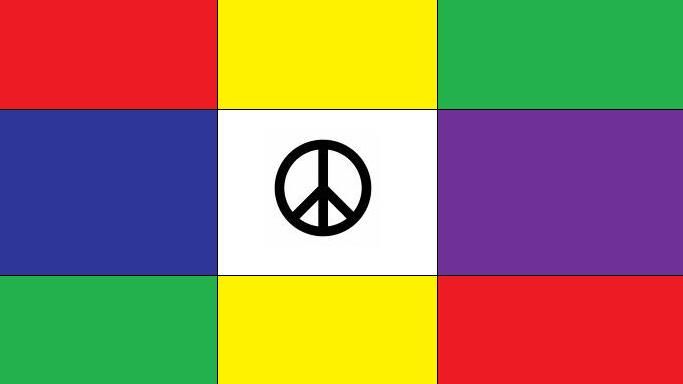

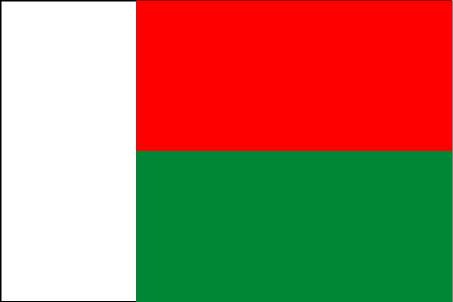

 )
)

